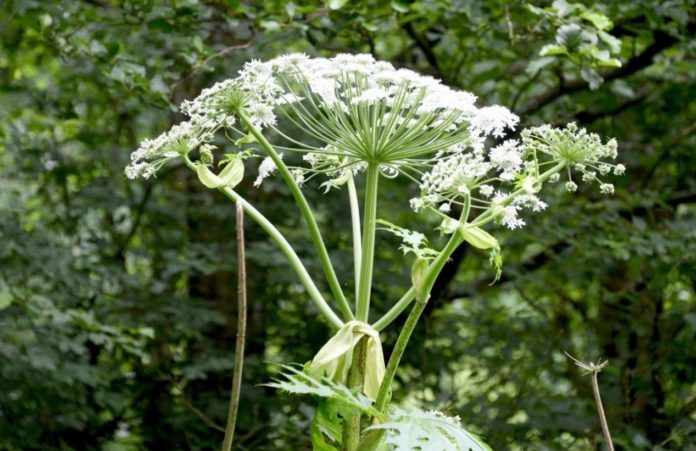One of the most dangerous plants has left two schoolboys with scorching blisters after contact with it burned their flesh.
Brothers Alfie, 12, and Henry, 10, have to use steroid cream three times a day and take antihistamines after accidentally brushing past some toxic giant hogweed near Wordsley in the West Midlands
Mum, Nikki, who gave only her first name, said:
- Scientists in Fear of This New Predator From Red Sea Eating Native Species in Mediterranean
- Does This Mean We Stopped Being Animal and Started Being Human Due to ‘Copy Paste’ Errors?
- The One Lifestyle Choice That Could Reduce Your Heart Disease Risk By More Than 22%
- Aging: This Is What Happens Inside Your Body Right After Exercise
- Immune-Boosting Drink that Mimics Fasting to Reduce Fat – Scientists ‘Were Surprised’ By New Findings
They’d taken their tops off and I think they just ran past the plants as they were playing.
There were no signs that anything was wrong at the time – no stinging, or any pain or redness of any kind.
But when Alfie arrived home from school on the Monday, he said ‘I think you need to have a look at my shoulder, there’s something wrong with it.’
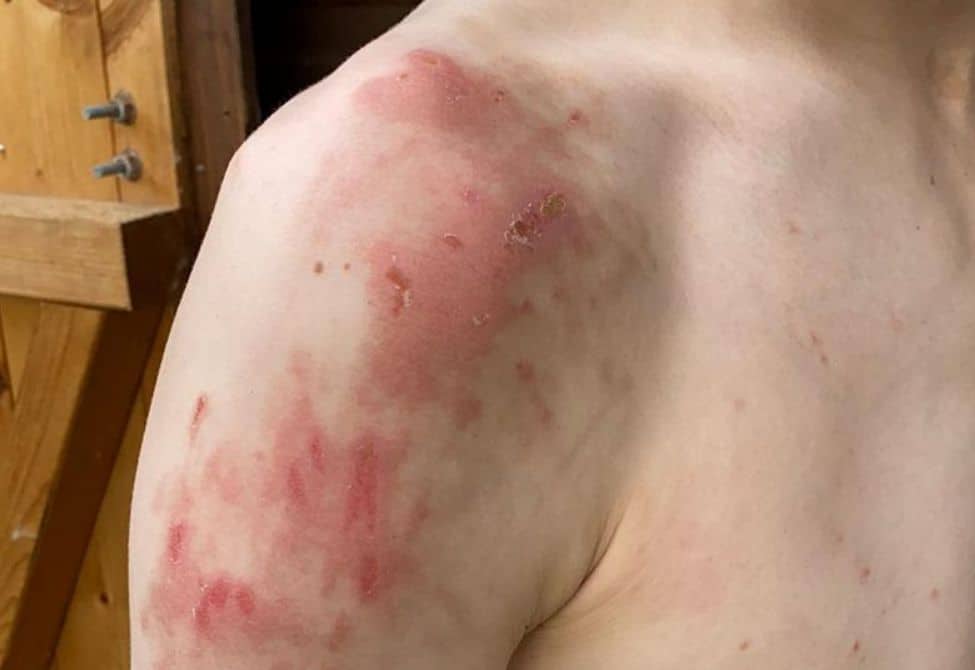
When he took his shirt off, his shoulder and arm were red and covered in blisters. He also had a small blister on his stomach and other arm.
Over the next few hours more appeared on his arm, leg and stomach and also red marks without blisters appeared over his lower back.
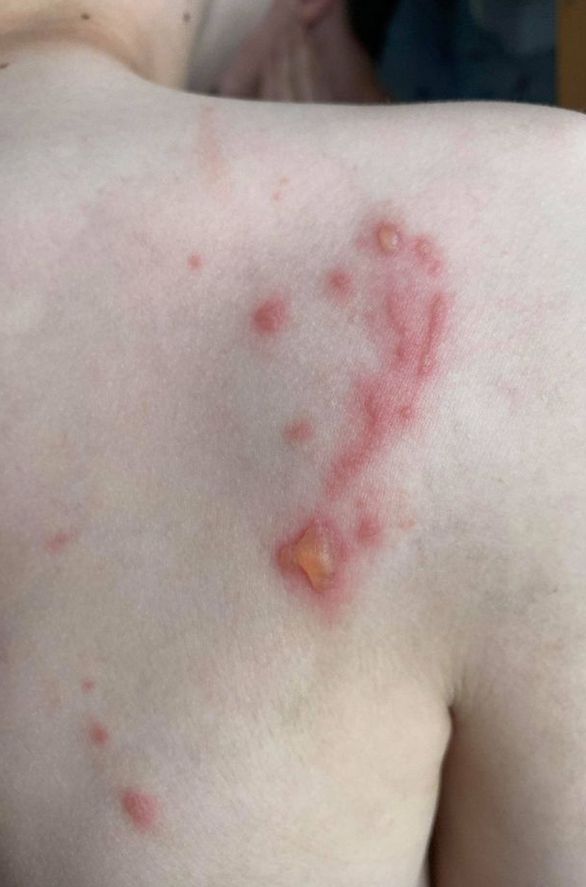
I checked Henry and he had a small patch on his shoulder blade with blisters, where a few more developed.
The sap of the giant hogweed stops the skin from protecting itself against sunlight, leading to nasty burns when exposed to the sun’s rays.
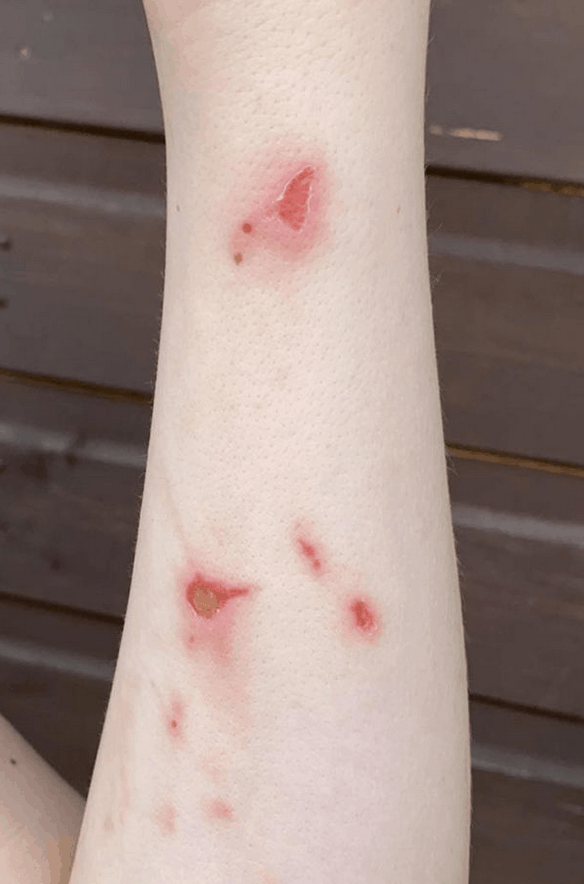
For Alfie and Henry, it’s left them using steroid cream three times a day, with doctors also prescribing a week-long course of antihistamines. They still bear the scars.
We’ve no idea how long it will take to clear up
said Nikki, 43.
From what I have read it can take a long time for the initial scarring to fade.
I guess it will depend on how well they can keep it out of the sun as it can reblister when exposed to sunlight.
The school boys were playing near the River Stour when they encountered the giant hogweed.
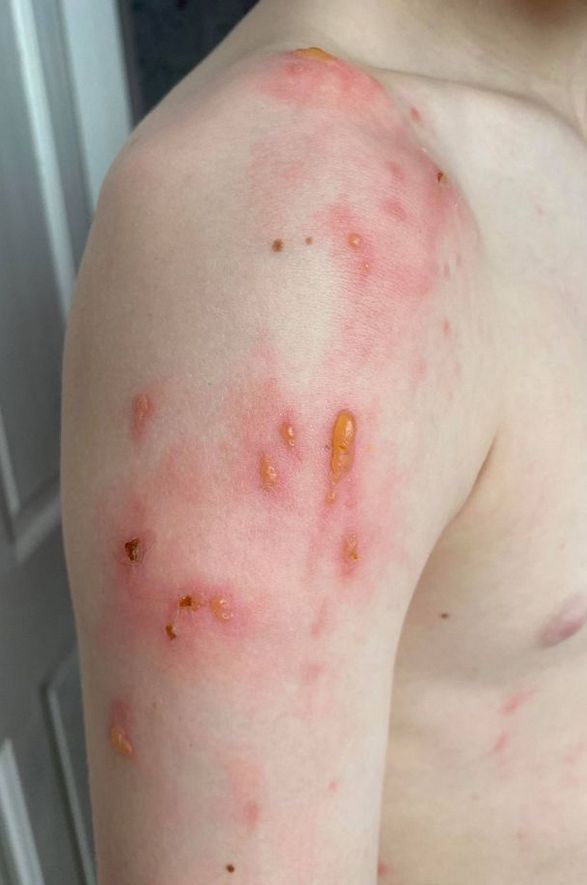
Two miles away, on another branch of the river, Jayden Pinches, 11, was scorched by the plant while spending the weekend with his dad.
Mum Eulalia Sintes, 30, said:
When he came back home to me the following morning he showed me his arm and neck, which had blisters on them
It happened nearly three weeks ago and the blisters have only recently gone, and he’s been left with marks which I’m hoping will clear up over time.
Because it was on the inside of his elbow it hurt every time he bent his arm when the blisters were there.
Now both parents have warned other parents about the plant, which has taken root across the country.
I would just advise parents to know what the plant looks like and to be aware of it
Nikki added:
Warn your kids to keep an eye out for it and steer clear of it if they see it.
Many kids used to use cow parsley to make pea shooters and it looks so similar that it is easy to get them mixed up.
The giant hogweed is native to the Caucasus, but was introduced to Britain as an ornamental plant in 1817, and its spread has now got out of control.
Mike Duddy, of the Mersey Basin Rivers Trust, said in 2015 that it was “without a shadow of a doubt, the most dangerous plant in Britain”.
- Scientists in Fear of This New Predator From Red Sea Eating Native Species in Mediterranean
- Does This Mean We Stopped Being Animal and Started Being Human Due to ‘Copy Paste’ Errors?
- The One Lifestyle Choice That Could Reduce Your Heart Disease Risk By More Than 22%
- Aging: This Is What Happens Inside Your Body Right After Exercise
- Immune-Boosting Drink that Mimics Fasting to Reduce Fat – Scientists ‘Were Surprised’ By New Findings
If exposed to the plant, you should thoroughly wash the area that made contact and keep it out of sunlight for a few days, the Woodland Trust advises.
Image Credit: Getty
